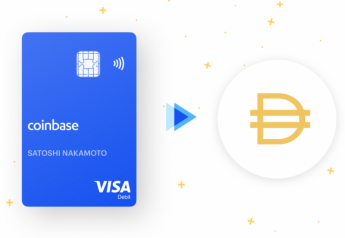French’s First investment of choice, Real Estate remains popular with savers. However, real estate investment is not very flexible and can be restrictive in terms of transaction times, procedures and costs (banks, notaries, administration, etc.).
With the advent of the blockchain, the digitalization of real estate has become one of the first cases of tangible use of tokenization of the economy in order to fluidize, accelerate and put an end to the lack of liquidity in the real estate market.
A minimum legal definition of tokens
Tokens can be defined as digitalized financial assets that allow the creation of fractions of ownership and almost instantaneous transactions.
However, it is only through the law for the action plan for business growth and transformation (known as the PACTE law¹) published on May 23, 2019, and supplementing the December 2017 Ordinance on security tokens², that a legal definition of a digital asset, including tokens, has been established.
These are now legally defined as “any intangible property representing, in digital form, one or more rights that may be issued, registered, retained or transferred by means of a shared electronic recording device[blockchain] that identifies, directly or indirectly, the owner of such property”.³.
This definition follows the AMF’s work, which led to a schematic definition of tokens by differentiating between⁴:
- Utility tokens, which grant a right of use to their holder by allowing them to use the technology and/or services distributed by the ICO promoter;
- Tokens offering political or financial rights, the purpose of which is to grant their holder financial or voting rights.
Please note that this very broad legal framework established by the PACTE law is only a minimum legal framework. The definition of digital assets does not take into account all varieties of existing tokens, in particular as currency, financial instruments or rights of claim.

A better controlled but nascent tax system
At the same time, the finance law for 2019⁵ provided welcome clarifications on the taxation of bitcoins and other digital assets, including by establishing a flat-rate taxation of gains made by individuals on the occasional disposal of digital assets as from January 1, 2019⁶.
The “mining” and usual purchase/resale gains were not directly affected by this measure, and remain taxed respectively in the BNC and BIC categories.
In practice, the notion of digital assets then concerns, on the one hand, tokens issued on the occasion of a fundraising event (or ICO for “Initial Coin Offering”), and generally exchangeable for crypto-currencies, and, on the other hand, crypto-currencies themselves, negatively defined as not fulfilling the traditional functions assigned to money.
As a result, to date, exchange transactions between digital assets are not taxable as such. Thus, the exchange of tokenized real estate assets for other digital assets could be carried out without having to report a taxable capital gain.
Indeed, these transactions between digital assets are considered neutral as long as the digital assets are not converted into legal tender, or used to acquire a good or service. When this conversion or use occurs, the capital gains realized are taxed at the flat tax rate of 30% (12.8% income tax and 17.2% social security contributions)⁷.
Please note that no option is provided for taxing capital gains on the sale of digital assets on a progressive scale, unlike the global option system provided for in the case of a single flat-rate levy.
Similarly, it is regrettable that no clarification has been provided on the criteria for distinguishing between the occasional investor and the usual operator and that annual net capital losses cannot be offset against future capital gains for the following ten years.

Any chance to escape the IFI in France?
Since January 1, 2018, the IFI has replaced the wealth solidarity tax (ISF)⁸ in France. Thus, virtual account units stored on an electronic medium (in particular “bitcoins”) no longer make up the taxpayer’s taxable assets⁹.
The IFI’s base is now composed exclusively of all the real estate assets and rights belonging to the taxpayer as well as investments in the shares or shares of companies and organizations, up to the fraction of their representative value of real estate assets or rights held directly or indirectly by the company or organization, whose declared value exceeds EUR 1 300 000 on January 1 each year¹⁰.
However, tokens make it easy to exchange a fraction of the ownership of assets or certain rights related to the underlying asset without the ownership of the asset itself. Applied to real estate, the token can be used to transfer a real estate ownership right, a right of use, a right to rent or other rights attached to the underlying real estate asset.
Under these conditions, for the issuer, initially, the tokenization of real estate and the issuance of tokens will allow the fluidification of real estate assets and acquisition of a cash amount that can be reinvested very quickly. In a second step, the tokenization of real estate assets may enable the reduction of the taxable base at the IFI.
Indeed, if the tax authorities were to estimate that real estate ownership and real estate rights relating to tokens are included in the IFI’s taxable base, taxpayers subject to the IFI in France could then easily reduce their tax base to the IFI by tokenizing part of their real estate assets to fall below €1.3 million on January 1 each year.
Pending clarification from the tax authorities, new legislative or jurisprudential definitions and the launch of the first tokenization of a property between private individuals in France, taxpayers must already consider this new method of optimizing their assets and their IFI.
Is it possible to invest in tokenized properties actually?
Some companies start proposing tokenized properties as well as other types of assets. Vave is the first platform to link Real Estate Owners to Investors.
The platform proposes the primary market on which investors can directly buy from owners; and the secondary market too for investors to buy and sell from each other.
Note that you can only explore San Francisco and Paris cities’ properties for the moment.
[1]: Law n° 2019–486 of May 22, 2019 relating to the growth and transformation of companies and setting up the regulation of initial coins offerings (ICO) (or issuance of tokens)
[2]: Order №2017–1674 of December 8, 2017 on the use of a shared electronic recording device for the representation and transmission of financial securities
[3]: Monetary and Financial Code, Article 522–2, new
[4]: Summary of responses to the public consultation on Initial Coin Offerings (ICO) and status report on the UNICORN project of February 22, 2018
[5]: Law n° 2018–1317 of December 28 2018 on finances for 2019, art. 41
[6]: CGI, art. 150 VH Bis, new
[7]: CGI, art. 200 C
[8]: Law №2017–1837 of December 30 2017 on Finance for 2018, art. 31
[9]: Formerly BOI-PAT-ISF-30–20–20–10–20140711
[10]: CGI. art. 965
 English
English  French
French 

